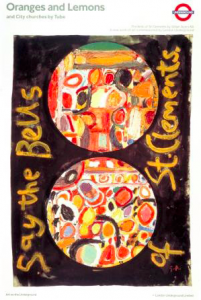
In times of turbulence, shock and awe, it’s hard to keep a sense of balance and where our attention needs to be. There is so much noise and so much confusion, so this post aims to remove some confusion in the world about creativity and variation.
Seth Godin, so wise about many things concerning marketing and business, wrote about something I believe he does not really understand. As so many people listen to him it’s worth pointing out. Here is what he said:
“One way to make something is to pre-process all the inputs. Make sure that you’ve worked the supply chain so that the raw materials are precisely the same every time. Guarantee that the working conditions are identical. Isolate all your processes from the outside world, so they’re reliable and predictable. The other way is to use natural light. Take what you get. Make the variability in your inputs part of what you create.” See his blog .
Now, that may sound appealing and “creative” because Seth seems to be suggesting that we can apply it to anything we make, from ketchup to photography: “less repeatability, more engagement.”
Let’s disagree. The only way to make something that is of Quality is to make it in a way that is reliable and predictable. Reliable and predictable do not equal boring. They equal Quality. If you don’t care about Quality then there is no problem, but don’t expect to stay in business for very long. Everything we do in life is subject to variation. All we can do is be aware of variation, measure it and manage it which means reducing it where it threatens output. Learning the appropriate statistical way to do this is paramount.
Ah, but that’s not very creative, you may say. Well, we may decide that pure art is something of a very different category (and even here, great artists are probably a lot more systematic and disciplined than people think). Anything below great art is produced for a purpose, whether it is to delight or to be useful, so Quality is always an issue.
So, Seth, it’s not by “isolating processes from the outside world” that we build reliability. The outside world is always feeding our processes and, in turn, we feed our customers with our outputs in the outside world. Our job is to make sure that whatever we want to deliver to our customers is of the highest Quality. That is called respect and it’s the way to make a better world. Right now we need to do everything we possibly can to make things better.
(The image above is of the London Transport poster I’ve had for many years, displaying a painting by the British artist Gillian Ayres, a remarkable artist, who died on April 11 this year.)
See our article on Variation
Sign up to our blog here and shift your thinking towards broader, systemic possibilities for yourself and your organization. Intelligent Management provides education and training on systemic management, W. Edwards Deming’s management philosophy and the Theory of Constraints (Decalogue methodology) in North America and Europe.
About the Blog Author and Editor
Angela Montgomery Ph.D. is Partner and Co-founder of Intelligent Management and author of the business novel+ website The Human Constraint that has sold in over 20 countries. She is co-author with Dr. Domenico Lepore, founder, and Dr. Giovanni Siepe of ‘Quality, Involvement, Flow: The Systemic Organization’ from CRC Press, New York.





Leave a Reply